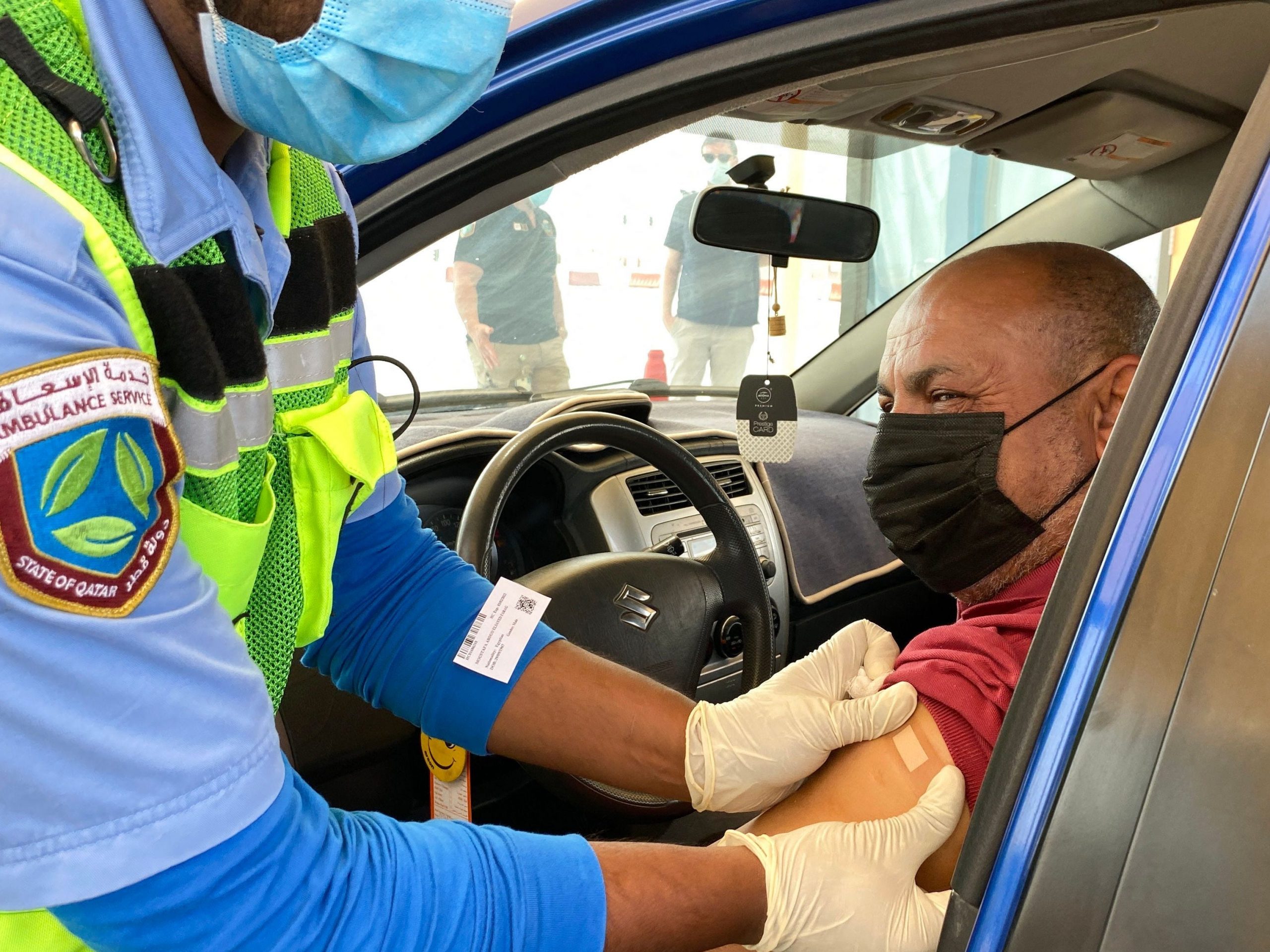
(Photo by Anne LEVASSEUR / AFP) (Photo by ANNE LEVASSEUR/AFP via Getty Images)
- Pfizer's vaccine was 54% effective against severe COVID-19 caused by variants after one dose in Qatar.
- Effectiveness against severe COVID-19 rose to more than 90% when two doses were given 21 days apart.
- The results were published in a letter in the New England Journal of Medicine on Wednesday.
- See more stories on Insider's business page.
A second dose of Pfizer's two dose COVID-19 vaccine boosted protection against coronavirus variants including the worrisome variant from South Africa, real-world data from Qatar suggests.
The Qatari study, published as a letter in the New England Journal of Medicine on Wednesday, found that the COVID-19 vaccine co-developed by Pfizer and BioNTech, was 54% effective against severe illness after one dose and more than 90% effective against severe COVID-19 two weeks after the second dose. Qatar has been giving the shots at 21 days intervals.
The study authors found that a second dose of Pfizer's vaccine provided strong protection against variants, including against B.1.351, the variant first found in South Africa. Pfizer's previous lab experiments have found that antibody's produced by the vaccine didn't work so well against a pseudovirus similar to B.1.351. It wasn't clear how this lab finding would translate into the real-world.
In the Qatari study, Pfizer's vaccine was 75% effective at preventing infection of varying severity caused by the variant first found in South Africa, called B.1.351, after two doses, and 16.9% effective against B.1.351 infections after one dose.
The study also adds to a growing body of real-world evidence, including from Israel, that suggests Pfizer's vaccine is highly effective against the highly infectious B.1.1.7 variant, the variant first found in the UK that's commonly found in the US where there are more than 20,000 reported infections across all 50 states, according to the Centers for Disease Control and Prevention (CDC).
Two weeks after the second dose, Pfizer's vaccine was 89.5% effective at preventing infection of varying severity caused by B.1.1.7, and 29.5% effective against B.1.1.7 infections of varying severity after one dose.
The importance of getting the second dose
More than 6,000 people of more than 385,000 got a single dose caught coronavirus and five died from COVID-19. While more than 1000 people of more than 265,000 that had two doses got infected and two died from COVID-19, the study authors said. "Nearly all" infections were caused by either B.1.1.7 or B.1.351, they said.
"[The Qatari data] really strongly emphasizes, with the variants, that need for the second dose," Kathleen Neuzil, professor in vaccinology at the University of Maryland School of Medicine told the Washington Post. "Which is a message we've been delivering, but now we have human clinical data to support that message."
The authors did not detail how long after the first dose they tested Pfizer's vaccine. Protection after one dose usually kicks in at about 12 days after the first dose and it isn't yet clear how long single dose protection lasts.
This means it remains unclear exactly how well a single dose of Pfizer's vaccine works against variants.
Real-world data from the UK, where B.1.1.7 is dominant, found that a single dose of Pfizer's shot cut COVID-19 infections with symptoms by 72%. Protection from a single dose probably holds up for at least 10 weeks, based on measurements of antibody levels, the study said.
Another real-world study from Scotland published in the Lancet on April 23 found that a single dose of Pfizer's vaccine was 91% effective against hospitalization at 28 to 34 days following vaccination, but effectiveness waned after five weeks.
